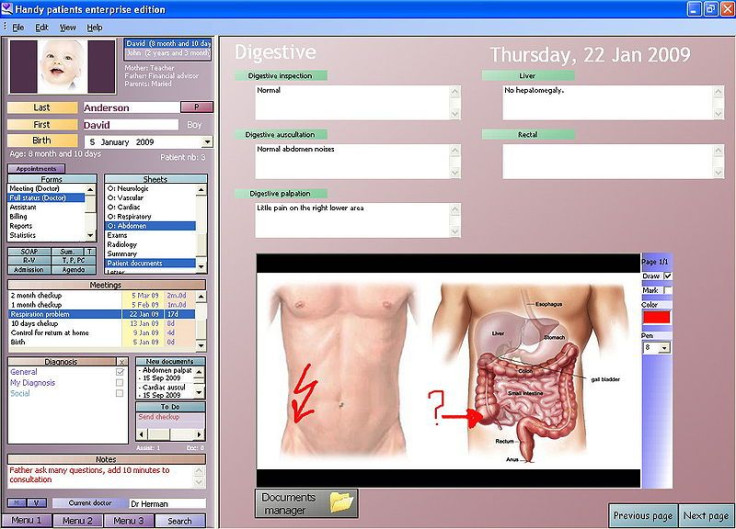More Than Half Of America’s Doctors Are Using Electronic Health Records

The U.S. Department of Health and Human Services (HHS) announced today that more than half of the nation's health care providers have received Medicare or Medicaid incentive payments for using electronic health records (EHRs).
The meaningful use incentive program is part of the Obama administration's American Recovery and Reinvestment Act of 2009, which provides incentive payment to eligible health care professionals and hospitals who "adopt, implement, upgrade or demonstrate meaningful use of certified EHR technology." The health IT programs began in 2011 and are administered by the Centers for Medicare and Medicaid Services and the Office of the National Coordinator of Health Information Technology.
The incentive program was implemented for the purposes of improving the quality and convenience of patient care, bettering care coordination, and increasing cost savings, among other things. EHRs aid in this effort, as they are simpler, digital versions of traditional patient charts, increasing accuracy in patient medical histories, decision making, and day-to-day care.
HHS has come full force behind the implementation of EHRs because they have become especially instrumental in the health care reforms set forth in the Affordable Care Act, or Obamacare. As care coordination and efficiency improve, it creates even more of an incentive for healthcare providers to adopt EHRs.
HHS set a goal for 50 percent of doctor offices and 80 percent of eligible hospitals to have EHRs by the end of 2013. Right now, more than 291,000 eligible professionals and over 3,800 eligible hospitals have received incentive payments from the meaningful use incentive program. The department said it has met and exceeded its goal.
"We have reached a tipping point in adoption of electronic health records," said HHS Secretary Kathleen Sebelius. "More than half of eligible professionals and 80 percent of eligible hospitals have adopted these systems, which are critical to modernizing our health care system. Health IT helps providers better coordinate care, which can improve patients' health and save money at the same time."



























